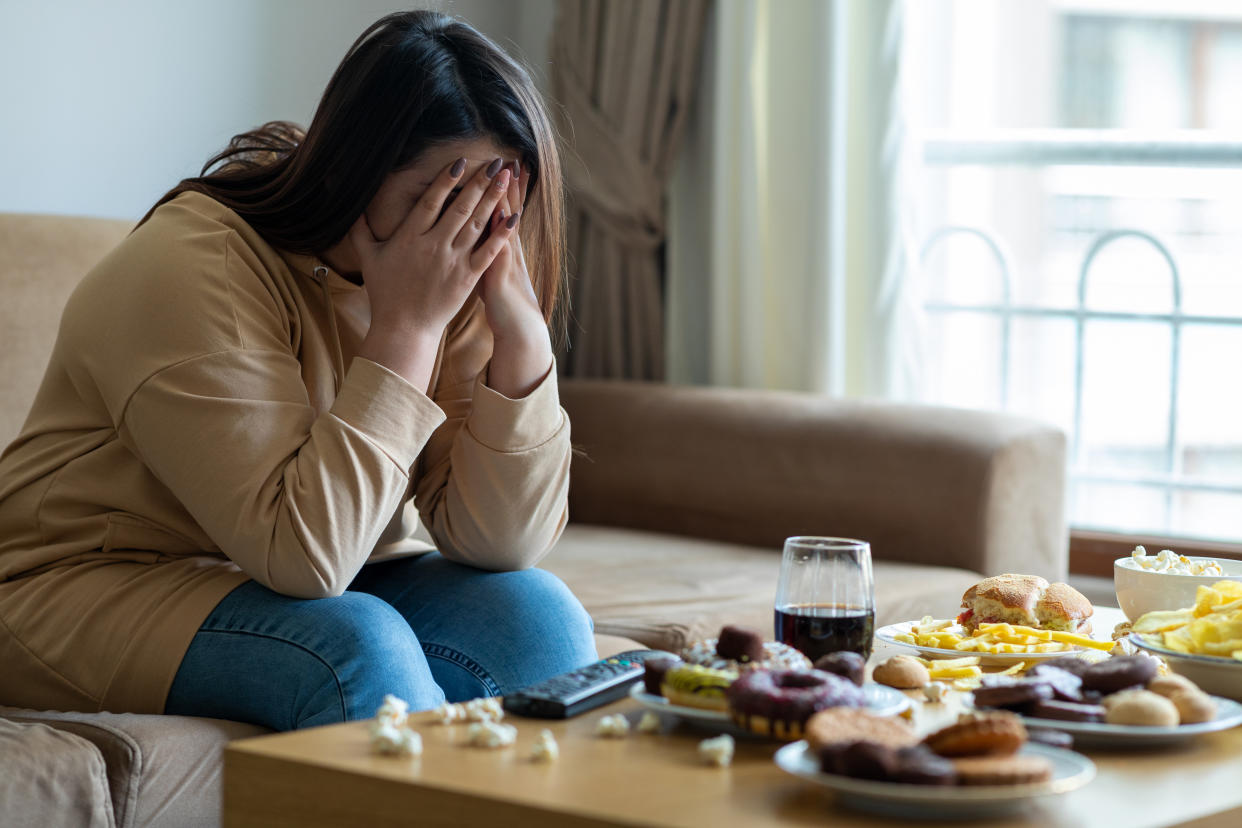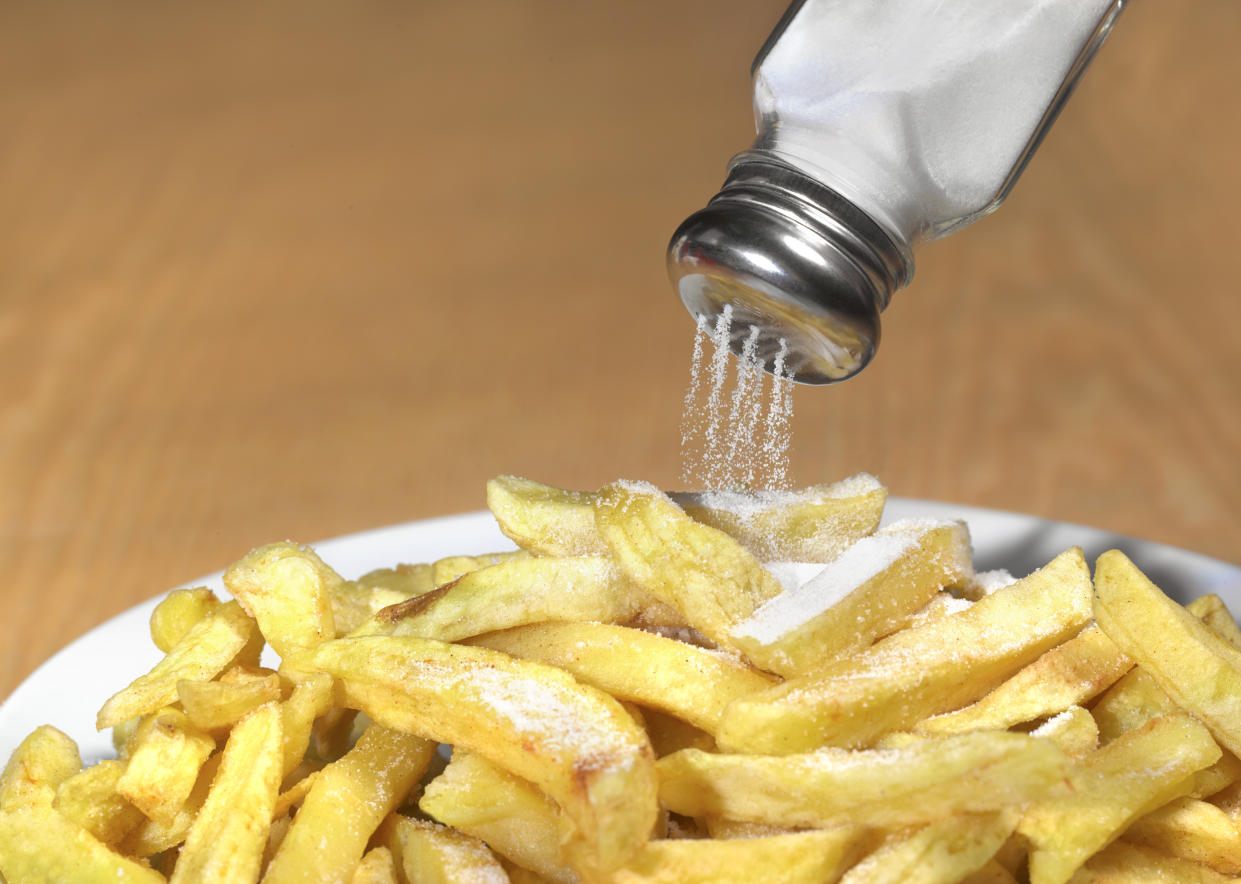How to know if you have a food addiction - and what to do about it

A self-confessed chocolate addict has lost 12st in one year after completely overhauling his lifestyle.
Tobie Vermeire, 31, says he was "eating himself to death" with his food addiction, which saw him consume as many as 10,000 calories per day.
The recommended daily calorie intake for a man to maintain his weight is 2,500 calories.
The insurance broker says he would eat two or three pizzas, a full English breakfast and a Chinese takeaway every day with multiple chocolate bars as a snack in between.
"I had to come to terms with the fact I had an addiction to food," Vermeire, who weighed 26st at his heaviest, explains. "It got to the point where I couldn’t pull my socks up or walk up a flight of stairs. I had to treat it like a drug addition. I had to retrain my mind."

Earlier this year, the Public Health Collaboration (PHC) charity said it estimated that around 10 to 20% of the British population are addicted to high sugar and ultra-processed foods.
It also called on the World Health Organisation to make junk food addiction a genuine substance-use disorder the same as alcohol and tobacco.
However, unlike alcohol and tobacco, an addiction to food is a much harder challenge to tackle as consuming food is a necessity to everyday life.
"Food addiction dances on the fine line between necessity and excess," MD and clinical nutritionist, Evelina Sabonaityte, explains. "Unlike alcohol or tobacco, which can be avoided entirely, everyone must face food daily. The omnipresence of food and its cultural, social, and emotional ties make its addiction a more intricate challenge."
What is food addiction?
"Food addiction is a complex and relatively understudied phenomenon that involves a compulsive and often uncontrollable urge to consume certain types of food - even when faced with negative consequences," Lee Mitchell, nutrition expert and UK Fitness Ambassador for Renpho explains.
Sabonaityte adds that food addiction can occur with a diet high in fat, sugar, and salt.
"These foods can stimulate reward centres in the brain, similar to addictive drugs," she adds. "This neurological stimulation leads to an emotional and physiological 'need' for these foods, even in their absence."

Most common food addictions
Mitchell says the main food groups that can lead to a food addiction are:
sugary snacks
fast food
processed desserts
foods with a high glycemic index (GI)
“Foods rich in fat and sugar possess the remarkable ability to turbocharge the brain's reward circuitry," he adds. "They have the capacity to override the brain's innate mechanisms that typically signal an individual to halt their eating. In such instances, an individual might find themselves compelled to indulge in increasingly larger quantities of food."
Sabonaityte says that people can be addicted to some seemingly healthy foods too, pinpointing granola, dried fruits, and even yoghurt with high sugar.
"There’s also the emotional dimension," she adds. "Comfort foods like mashed potatoes, for instance, which people might not consume for their salt, sugar, or fat content, but for the emotional nostalgia they carry."
Signs you may be addicted to food
Mitchell says some telltale signs of a food addiction include:
Loss of control: You find it difficult to stop eating a particular food even if you intended to eat just a small amount
Cravings: Intense and frequent cravings for specific foods, often leading to consumption even when not hungry
Negative consequences: Continued consumption despite physical, emotional or social problems resulting from overeating
Isolation and secrecy: Hiding your eating habits due to embarrassment or guilt
Failed attempts to cut down: Repeated unsuccessful efforts to control or reduce intake of addictive foods
Implications of a food addiction
The main implication and side effect of a food addiction is that it can lead to obesity, which can further lead to a multitude of health problems such as diabetes, heart disease, cancer and other chronic health issues.
"It can lead to low self-esteem, depression, anxiety, and a strained relationship with food," Mitchell says. "Addressing food addiction requires professional support, including from nutritionists, therapists and medical practitioners, to develop coping strategies, healthier habits, and a more positive relationship with food. Remember that seeking help is a sign of strength, and with the right guidance, recovery is possible."

How to overcome a food addiction
Sabonaityte says, before you can overcome a food addiction, you first have to understand the 'why' behind it.
"Is it purely physiological or are there emotional gaps being filled?" she adds. "Unravelling this helps in treatment. While some need to cut out trigger foods initially, the ultimate goal is a harmonious relationship with all foods. I often use the analogy of rebuilding trust in a relationship: it takes time, understanding, and consistent effort."
Mitchell agrees that completely cutting out the addictive food might be necessary during the initial stages of recovery, but that later on these foods should be replaced with healthy alternatives to develop a balanced and sustainable eating pattern.
If you think you are struggling from a food addiction, you can call the BEAT Eating Disorder Helpline in England on 0808 801 0677.


